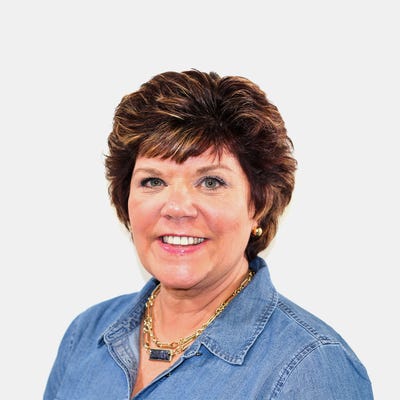1-on-1 With Kathleen Mahoney, President of SpartanNash’s MDV Military Division
WGB's June Endcap interview with the distributor’s EVP and chief legal officer. WGB's June Endcap interview explores the seasoned retail executive’s views on the gratifying aspects of serving and employing veterans, the perils of ‘leadership by intimidation,’ and the most important issues and opportunities for women in the food industry.
June 8, 2018


Kathleen Mahoney is president of SpartanNash’s MDV military division and also serves as SpartanNash EVP and CLO.
Welcome to Endcap, Kathy! As you mark the nearly one-year anniversary as president of SpartanNash’s Norfolk, Va.-based MDV military division—which serves our American heroes and their families both at home and abroad—what has been the most enlightening aspect of your role to date?
KM: I have always been impressed by the commitment our MDV associates have for serving our military heroes, but I am delighted to see how the industry all comes together to do what it takes to advance the military resale system.
In 2017, 6.4% of all SpartanNash hires across its corporate retail, distribution, military and food manufacturing business segments identified themselves as veterans. How, in your view, do veterans enhance a company’s culture and talent base?
KM: We have had a veterans’ hiring preference for more than a decade and have very strong military affiliations in our MDV locations. It’s been inspiring to see how the company as a whole embraces our core value of patriotism. We have found that veterans bring with them a strong work ethic, discipline, resiliency and a can-do attitude, not to mention great leadership skills.
You’ve logged a fascinating career path, which has included roles of increasing responsibility at both SpartanNash and Nash Finch. Earlier in your career, you were a trial lawyer and managing partner for two law firms, joined the Attorney General’s office in Minnesota, and held a law clerk role with a Minnesota Supreme Court judge. What’s one key leadership lesson you’ve learned firsthand in your profession?
KM: Leadership by intimidation can cripple the culture of an organization. Prior to my joining the Nash Finch in 2004, there was the view that conflict drove profitability. It took years to break down the walls that were built as a result of that approach and regain the trust of the workforce. While a conflict approach may deliver short-term results, the long-term impacts can be devastating to the culture.
Conversely, when thinking about a former influential authority figure from your past, what is the most important thing you learned from them, and how has it benefited you?
KM: The honorable Douglas K. Amdahl hired me as his law clerk shortly after he was appointed to the Minnesota Supreme Court. Even though Judge Amdahl had decades of experience and a stellar reputation as legal scholar and writer, he treated me as an equal, and someone who made equal contributions. Of course, while there was no way my efforts equaled his, by treating me as a valued member of the team, I was never hesitant to offer my opinion and always strived to justify his trust in me. His approach to leadership showed me early in my career that leading with trust and respect not only builds confidence and loyalty but also drives people to deliver their best.
What was your dream job as a kid and why?
I was raised in an era when girls didn’t have choices. Our options were teacher, nurse or nun. In fact, when I was in high school, I decided I wanted to become a lawyer and was told that I couldn’t because I was a girl. So, I went to a teacher’s college and realized pretty quickly it takes a special skill to be a great teacher—and it was a skill I didn’t have.
What are the most important issues that you feel strongly about as it relates to issues and opportunities for women in the food industry?
KM: There are corners in our industry where women are underrepresented. The absence of women working in those corners early in their careers causes a dearth of qualified female candidates for leadership positions, thus perpetuating the perception that it is a male-dominated industry. While the best solution may well be reaching out to women early about the benefits of a career in the food industry to increase the female talent pool, every opportunity to highlight this as an industry in which women can achieve and succeed is also impactful.
What is something that you believe is true that some people would disagree with you about?
Everything happens for a reason.
Lightning Round
Which words or phrases do you most overuse?
During team updates, I apparently often conclude with, “...and that’s all I know.” (I didn’t realize this until someone pointed it out.)
What inspires you at work and in your personal life?
I love to learn new things.
How old were you when you had your first paying job?
15
What superpower would you most like to have?
Teleportation. I seem to spend way too much time on airplanes.
If we’re sitting here a year from now, what would you envision would be the best thing you could tell me?
My two daughters continue to be happy, healthy and successful in their own careers.
About the Author
You May Also Like






